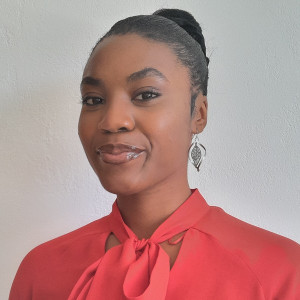A different language is a different vision of life.
Federico Fellini
How do you conduct a conversation with someone in Afrikaans? Better yet, how do you start learning Afrikaans? Knowledge of Afrikaans is vital if you live in South Africa and interact with Afrikaans speakers daily. Your reasons for wishing to better understand Afrikaans may be to communicate with your neighbours, the local shopkeeper, or your Afrikaans-speaking bank assistant.
Whatever your reason for wanting to start learning Afrikaans, you will need to start to learn Afrikaans for beginners. Once you've mastered beginner's Afrikaans, you need to think about how you will advance and stay motivated to keep learning and speaking this South African language.
Did you know that Afrikaans is the third most spoken language in South Africa?
Afrikaans first-language speakers in South Africa
The first thing about hearing any new language is the way that it sounds. You may think that you sound weird when speaking Afrikaans, but what imore important is that you can make others understand what you are saying. Below we offer some tips to make you better at Afrikaans conversation.

A Conversation in Afrikaans: A Definition
You engage in conversations daily, whether chatting to a passerby, where the interaction may be light, or talking to a family member, or a friend in a more in-depth or serious way.
Conversations are the same no matter which language is being spoken. What does change, however, are the words used and how they are expressed.
A conversation in Afrikaans, like any other language, is about carrying across news or ideas to someone else, essentially, communication. If you don't live alone, you're probably communicating with people soon after you wake up in the morning until the moment you go to bed. You greet those you live with, negotiate the use of the bathroom, offer to make breakfast or ask for a cup of coffee, etc. Why not use some of these opportunities to practise your vocabulary and grammar skills in Afrikaans.
As you head out of the door, you will find many other moments where having a conversation with others in Afrikaans may start to become pleasant and easier the more you use the language.
Improve your language skills by taking Afrikaans lessons in Durban here on Superprof. These interactions with an Afrikaans tutor are also a great way for you to practise your use of Afrikaans, its pronunciation, and idioms in the language. Aside from just relying on interactions with tutors who speak Afrikaans, you can read a blog post on guaranteed tips for better conversation in Afrikaans.
The Gestures of Conversation

The way ideas are carried over can be very different, depending on where in the world you find yourself.
Although most conversation is regarded as being verbal, body language is also important. If you, for instance, greet someone saying, “Hi. It is nice to meet you.” while looking the person up and down, you’re definitely sending out a signal that doesn't match what you are saying.
The way you use your body in conversations gives shape to your words as a frame does to a picture. It contributes to its overall meaning and the other person’s understanding of your message or intentions.
Talking with others in Afrikaans will improve your use of the language and accelerate the speed at which you learn it. First, it is important to be aware of words commonly used when people speak Afrikaans and to understand if your body language matches that which you are saying.

Meeting New People and Showing Off Your Skills in Afrikaans
The tips below are a guide for when you’re meeting someone for the first time.
These are great phrases to have access to when you’re communicating with strangers or even those who are close to you. Knowing some of these will help to ease your way into a conversation and contribute to your becoming increasingly confident when contemplating new encounters with strangers. You also need to understand Afrikaans sentence structure and knowing the language rules and conventions will help with relying important greeting and messages to others when beginning conversations.
Words and Phrases Frequently Used in Informal Conversations
A wonderful idea to help you advance your proficiency in Afrikaans, is to engage in what you can call language nights, where you are only permitted to speak the language you are learning: Afrikaans.
This activity has numerous benefits for you, including using the language as it is spoken in real-life situations, expanding your vocabulary, hearing yourself speak the language, perceiving others reception of your attempts at the language and their support for you and your progress.
Find different online Afrikaans lessons here on Superprof that will also help you to identify areas of improvement in the language.

Make notes as you learn new Afrikaans words and phrases. - Source: Pexels
The way a language is spoken by native speakers, is not always ‘textbook quality’. What follows are phrases that can facilitate conversations, to the point where you may be regarded as someone who is fluent in Afrikaans, even if Afrikaans is only your second language or third language for that matter.
These are a handful of expressions you will hear when listening to people speaking Afrikaans. It is not a complete list, however. Your framework of reference will be expanded upon as you converse, especially with native speakers, as often as possible. Your understanding will grow with each encounter as will your vocabulary and confidence! Soon you’ll be meeting new people and saying, “talk to me in Afrikaans”. This is really a great point to be at!
| Some infomal words/phrases | English translation | Meaning |
|---|---|---|
| Goeie genade | Goodness gracious | Used to indicate strong emotions, like shock or disbelief. |
| Dis lekker | That's nice/good | Used to indicate pleasure or say that something is good. |
How to Practise Afrikaans Conversations
To handle a language skillfully is to practise a kind of evocative sorcery.
Charles Boudelair
A long-distance runner, in the course of training to run a marathon, will engage in various activities to prepare him- or herself for race day. These activities will include cross-training, short runs (sprints), fartleks, threshold runs, and long slow distance runs.

Similarly, your preparation should be varied as well. You must spend time expanding and brushing up your Afrikaans vocabulary. Here, a notebook would help. Alternatively, you could print new words onto large sheets of newsprint which you pin up in prominent positions, so that you can revisit them daily, practise your pronunciation and fix them in your memory. You will also learn various idioms and phrases and commit them to memory.
You must also create opportunities for yourself to listen to Afrikaans speakers, to read and also write Afrikaans notes, memos, and even emails. Singing in Afrikaans will also benefit you in numerous ways, especially since you are hearing grammar rules through the singing of a native Afrikaans-speaking tutor. In you're in the Jhb area, you could consider Afrikaans lessons in Johannesburg to further enrich your practice.
Engaging with a native speaker will impact on your proficiency in innumerable ways. He or she will make you comfortable in the use of the language and, possibly, introduce you to nice, friendly Afrikaans speakers, with whom you can interact in Afrikaans, on a fun, social level. This little support group will help you stay on track and assist by fixing the little mistakes that may have slipped into your use of the language and colour your use of it in many beautiful and exciting ways... with much laughter, to be sure!
Listening to Afrikaans music and watching Afrikaans movies or soapies, with subtitles, are another “lekker” way to enjoy the language and grow with it. An episode or two of Suidooster will also be well worth your time and will help you with language learning.
If you still feel the need for assistance, contact a qualified professional who can assist you via Google Meet or Skype. In South Africa, right now, there are a growing number of Afrikaans tutors on platforms like Superprof just waiting to assist Afrikaans learners like you or even who are willing to assist a child to learn Afrikaans. Go ahead then: make that click, so you can learn the right Afrikaans "klanke".
Search for classes in Afrikaans here on Superprof.
Summarise with AI:
















